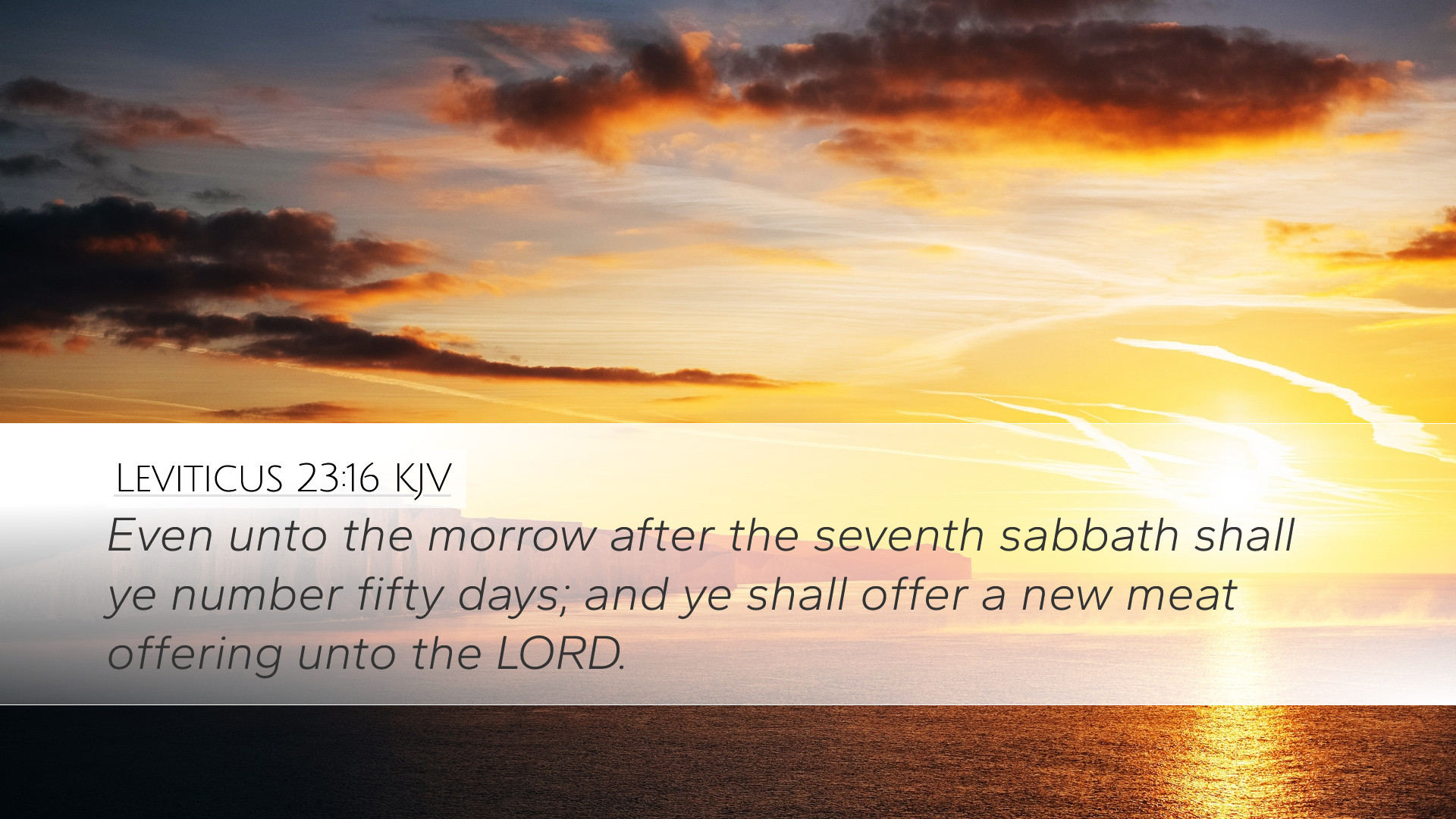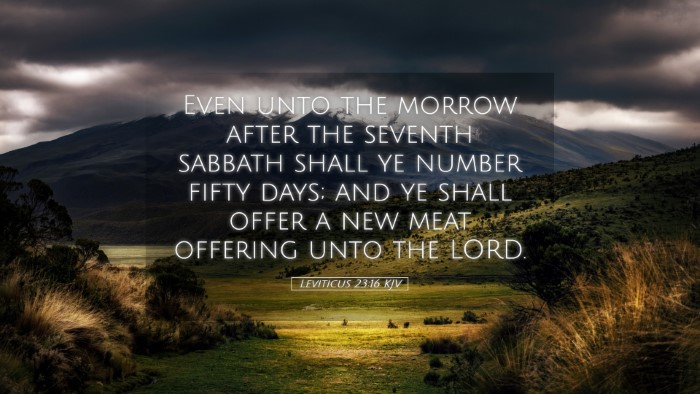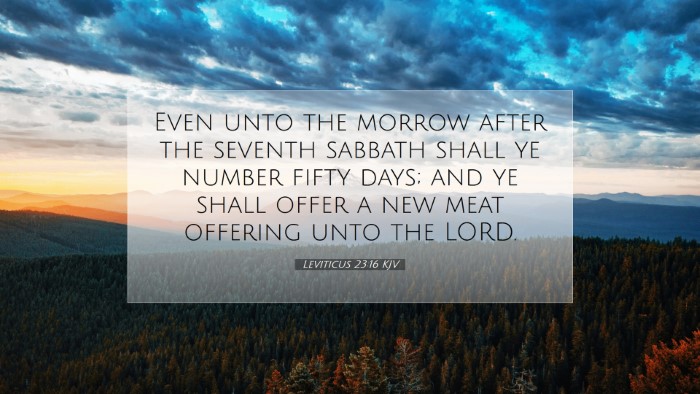Commentary on Leviticus 23:16
Bible Verse: "Even unto the morrow after the seventh sabbath shall ye number fifty days; and ye shall offer a new meat offering unto the LORD." (Leviticus 23:16)
Leviticus 23:16 marks an important point in the Jewish calendar, relating directly to the Feast of Weeks, or Shavuot, celebrated fifty days after the Passover. This commentary synthesizes insights from notable public domain commentaries, articulating the significance of these days and the offerings to be presented.
Historical and Cultural Context
The Jewish people had a rich tradition of observance within their liturgical calendar. Each feast represented not only agricultural cycles but also historical events in the life of Israel. The Feast of Weeks, or Shavuot, celebrated the giving of the Law at Sinai, and was also an agricultural festival marking the end of the grain harvest.
Fifty Days
Albert Barnes reflects on the meaning of the number fifty in biblical tradition, emphasizing its association with freedom and jubilee, noting that it is a time of liberation and divine blessings.
Matthew Henry adds that the counting of fifty days signifies a transition from slavery (Egypt) to freedom (the Promised Land), illustrating God’s faithfulness toward His people in delivering them and establishing His covenant.
Offerings to the Lord
This verse compels the Israelites to present a new meat offering unto the Lord. The term “new” indicates freshness in their sacrifice, reflecting ongoing gratitude and acknowledgment of God’s provision through the harvest.
Spiritual Implications
- Adam Clarke presents that these offerings are a reflection of the heart's response to God's continual blessings and mercy. Each offering was symbolic of the nation’s dependence on God for sustenance and grace.
- Additionally, Matthew Henry articulates that offerings symbolize the communal and individual relationship believers have with God, whereby the act of giving becomes an act of worship.
Theological Significance
Theologically, this verse encompasses God's commands relating to worship and communal life. Observing the Feast of Weeks as commanded in this scripture emphasizes obedience, an understanding of God’s timetable, and faithfulness in celebrating His goodness.
Albert Barnes elaborates on the significance of receiving the Torah during this feast. Just as the people celebrated with offerings, they were reminded that their existence hinged upon the laws given by God, framing their identity as His chosen people.
Application for Pastors and Scholars
For pastors, the implications of Leviticus 23:16 can be profound. It serves as a reminder to encourage congregations to cultivate a spirit of gratitude and commitment in their own offerings to God. The practice of celebrating God's provisions in their lives can strengthen community ties and individual faith.
Scholars and theologians may explore this verse concerning the overarching themes of covenant, grace, and divine provision reflected throughout Scripture. The offerings symbolize not only the physical gifts brought before God but also the inward posture of worship and dedication towards the divine.
Conclusion
In summary, Leviticus 23:16 is much more than a directive for the Israelites; it encapsulates a broader theological narrative about relationship, provision, and worship. As such, this verse is a remedy for contemporary believers to reflect on their own practices of faith and thankfulness.


